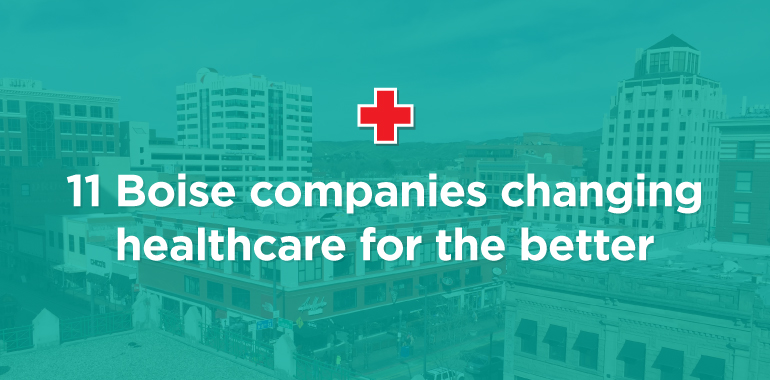From hospital analytics to 3D printing to a hands-free mouse, these Boise companies are making waves in healthcare.
Healthcare is experiencing a major transformation. What states, hospitals, insurance companies and people once expected of the industry has turned on its head, in part thanks to the Affordable Care act, HIPAA, Meaningful Use and stricter standards set by the federal government.
What does this mean? Healthcare — from billing to patient care — needs to be smarter, leaner and more efficient.
These Boise companies and startups are doing just that:
Behavior Imaging
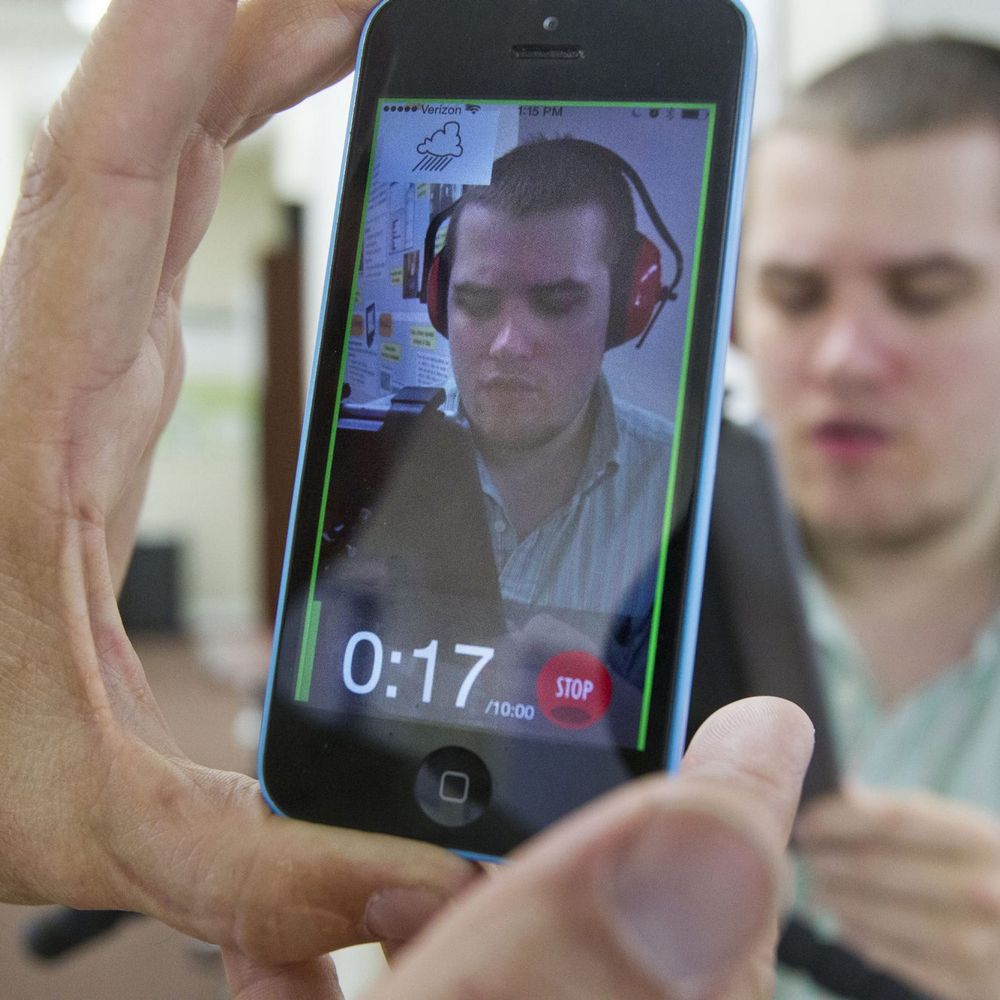
Unlike an X-ray or a blood test, behavioral health can be difficult to document objectively and precisely. Behavior Imaging uses cameras to document a person’s behavior in their home, school or at a clinic, which is shared with doctors and caregivers for a more accurate treatment.
CEO and Chairman Ron Oberleitner moved to Boise from New Jersey after creating two successful technology products: TalkAutism and AutismCares. This summer, Behavior Imaging was one of five businesses to be nominated by the National Institutes of Health for achievements in accountable-care solutions.
What are the benefits of building a healthcare / health IT business in Boise?
Ron: Supportive, accessible mentors and collaborators at the university and state level, experienced and motivated to pursue health IT ventures (without too many competitors to compete for their time and attention), who are willing to share their knowledge.
What are the biggest challenges of building a healthcare / health IT business in Boise?
Ron: Health providers in Idaho tend to trust out-of-state brands thus far to provide in-state health IT solutions. The state (Idaho) is behind others in adapting progressive reimbursable solutions to healthcare shortages.
Generally, there is a lack of trained software programmers and leadership level IT positions experienced in helping us continue to help providers conform to HIPAA practices.
Photo credit: Katherine Jones / Idaho Statesman
Dental RAT
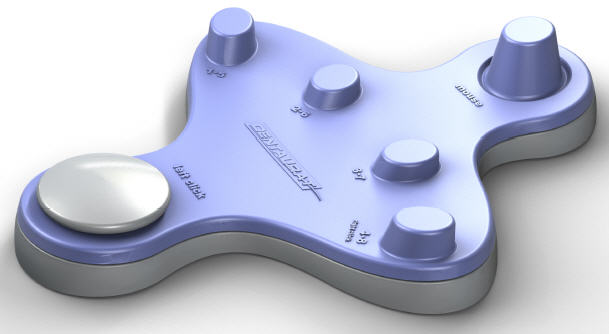
Invented by dental hygienist Beck Logue, Dental RAT is a hands-free mouse and keyboard controlled by your feet. Logue invented the Dental RAT after being frustrated with having to jump between a patient’s mouth, then to a keyboard (and back) to document a patient’s teeth. And it wasn’t efficient to have an additional hygienist entering periodontal data into the computer.
With help from Boise State University’s TechHelp center and a stock offering, Logue and team were able to manufacture the RAT and market it in industry catalogs and at trade shows.
Today, Dental RAT is being used in dental offices across the United States and world.
What are the benefits of building a healthcare / health IT business in Boise?
Becky: Boise has a lot of talented engineers and designers right here in the valley with HP, Micron and BSU. We also have a great small business development center (SBDC), technology and entrepreneurial center that was very helpful for us starting a new business.
What are the biggest challenges of building a healthcare / health IT business in Boise?
Becky: Our biggest challenge is traveling out of Boise, as it’s not a major hub. We always have (to connect) through a larger city.
Healthfundr
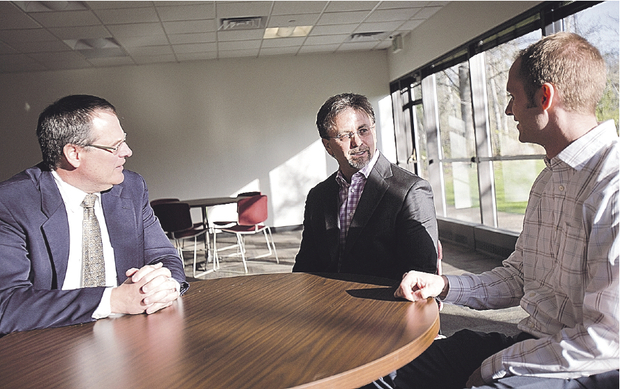
Based in Boise’s health science incubator MedTech Furnace, Healthfundr is a platform for investors to fund startups in amounts as small as $3,000. In the past, investors had to put down great sums of money for an investment, making funding more of a risk and harder for startups to gain the startup capital they need.
Similar to other crowdfunding sites, healthcare startups can create a profile on Healthfundr to generate awareness, network with experts, and get funding.
Photo credit: Kyle Green / Idaho Statesman
Kno2
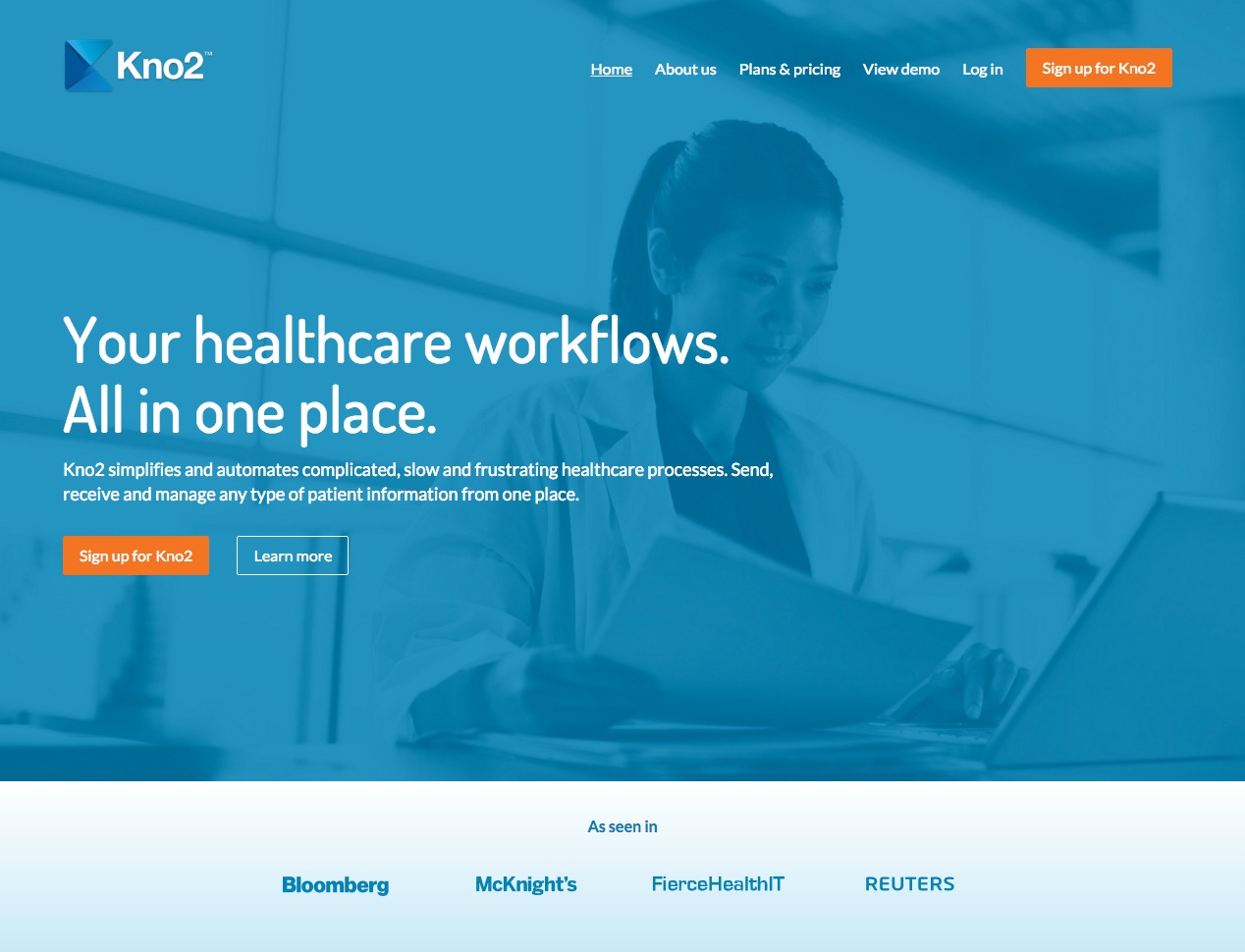
Founded in 2009, Kno2 is a HIPAA-compliant document exchange platform for healthcare. In layman’s terms, it’s secure email for the healthcare industry. Right now, a majority of hospitals and doctor’s offices across the country still use fax and snail mail to send patient records to other healthcare organizations. Kno2 wants to change all that with a Gmail-like web application and API for sending and receiving patient records electronically.
In the last couple years, they’ve been partnering with big names in healthcare — Surescripts, IOD, and Konica Minolta — to integrate with Kno2.
VisitPay
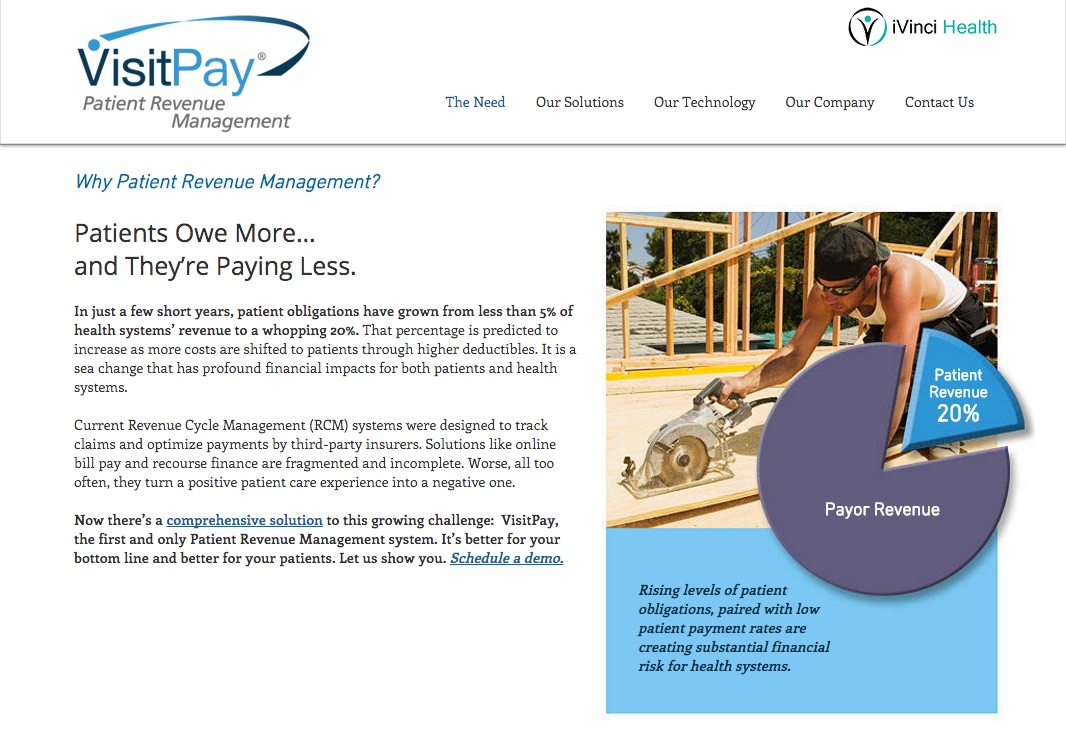
Trying to pay for a hospital or doctor’s office visit online can be a headache. VisitPay is trying to change that with a better bill pay experience that’s simpler, more accurate, and offers alternative payment options.
Founded in 2010, VisitPay’s parent company iVinci Health is made up of industry veterans in health technology and consumer finance.
Healthwise

This 40-year-old non-profit provides easy-to-understand health information, assistance and planning tools for hospitals, insurance companies and the consumer. If you’ve ever used WebMD or received reading material on a specific treatment or condition, you’ve probably read or watched content produced by Healthwise.
Photo credit: Darin Oswald / Idaho Statesman
Proskriptive
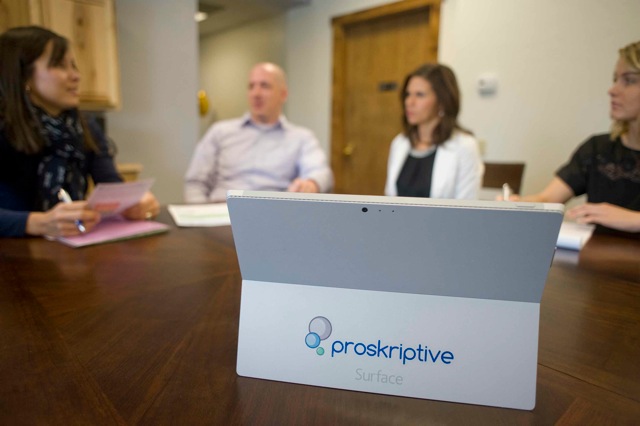
Proskriptive is another healthcare analytics startup in Boise. Their goal: Use aggregated data to inform healthcare organizations to make better decisions, increase savings, avoid risk, but still stay agile in the fast-paced healthcare industry.
With a projected revenue of over half a million dollars in 2015, Proskriptive is seeking an additional round of funding to grow the business further.
Photo credit: Boise Urban Magazine
WhiteCloud Analytics
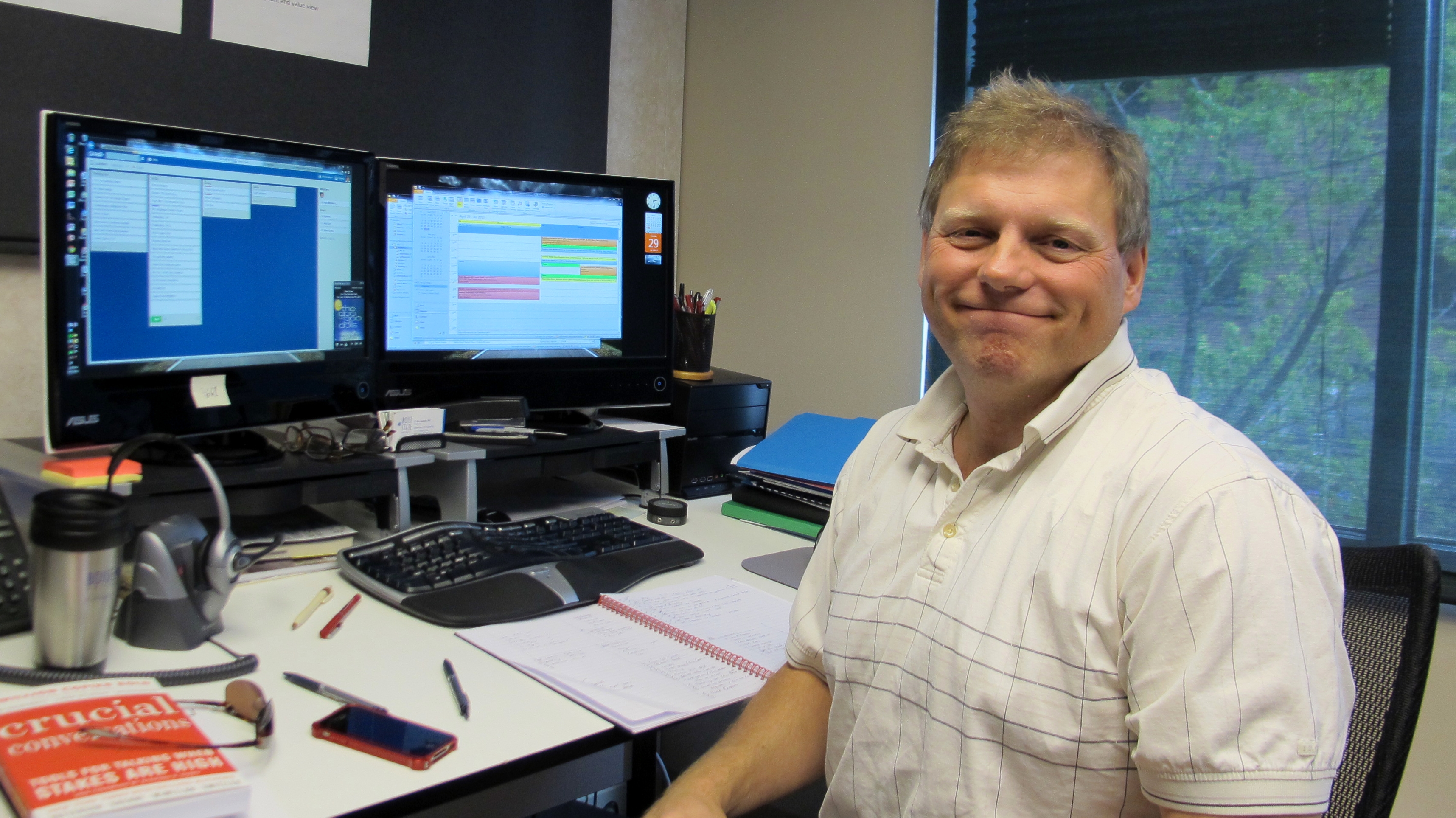
Headquartered on 8th Street in Downtown Boise, WhiteCloud Analytics provides hospitals and doctors with analytics-based insights that can cut costs, improve efficiency and most importantly, improve patient care.
Right now, hospitals collect heaps of data on their inner workings and costs, but most aren’t using this data to learn, in part because it’s in many different places and there is so much of it to track. That’s where WhiteCloud Analytics comes in.
The company helps hospitals collect, organize and analyze that data, to learn from it by finding patterns and provide insights to improve care and efficiency.
Pictured: CEO of WhiteCloud Analytics Bob Lokken, Photo credit: Molly Messick / StateImpact Idaho
Intermountain 3D
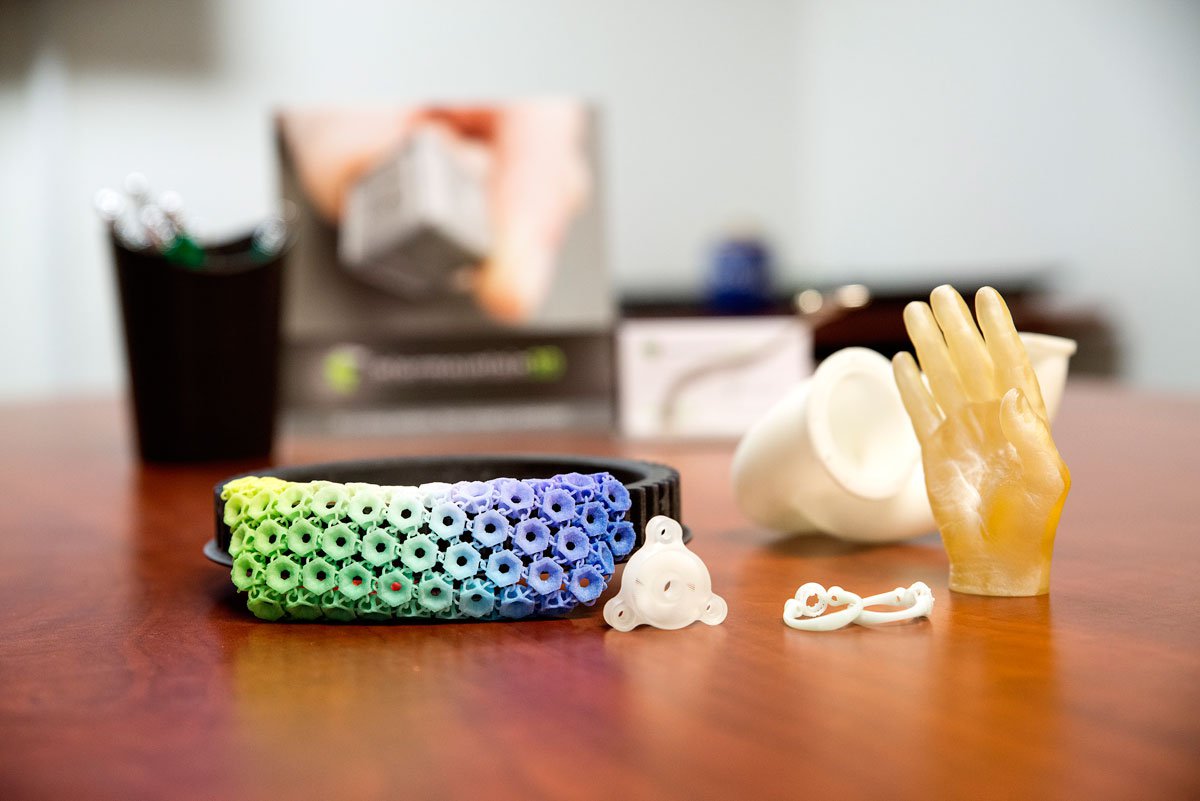
3D printing is utilized in a variety of industries — aerospace, architecture, energy, even jewelry — but the technology is also becoming a vital part of the healthcare industry. Hospitals and universities print 3D models of MRIs and CT scans to better diagnose patients or prepare for a surgery.
Lynn Hoffmann, CEO of Intermountain 3D, believes an even bigger part of 3D printing is in prosthetics and implants, where unique customization and modification is important for a patient.
What are the benefits of building a healthcare / health IT business in Boise?
Lynn: We have benefited from a great number of technology resources in Boise, including our own careers at HP and our connections to current and former engineers at the company. Not to be underestimated, too, is the access we have to other technology experts, government agencies and customers. I always say that in Idaho there aren’t 6 degrees of separation, there are 2 — I think we all know someone who knows whoever we’re trying to reach. There’s a collegial feel to starting a high-tech company here that encourages risk-taking.
What are the biggest challenges of building a healthcare / health IT business in Boise?
Lynn: The biggest issue in healthcare 3D printing applications is that there are very few medical device manufacturers in the state, and no teaching hospitals or others who are looking to lead out on this. 3D printing technology will start to permeate healthcare delivery in the next few years, but unless something changes, those innovations are going to come into Idaho from elsewhere.
Photo credit: Mike Kerby / Built in Boise
PKG User Interface Solutions
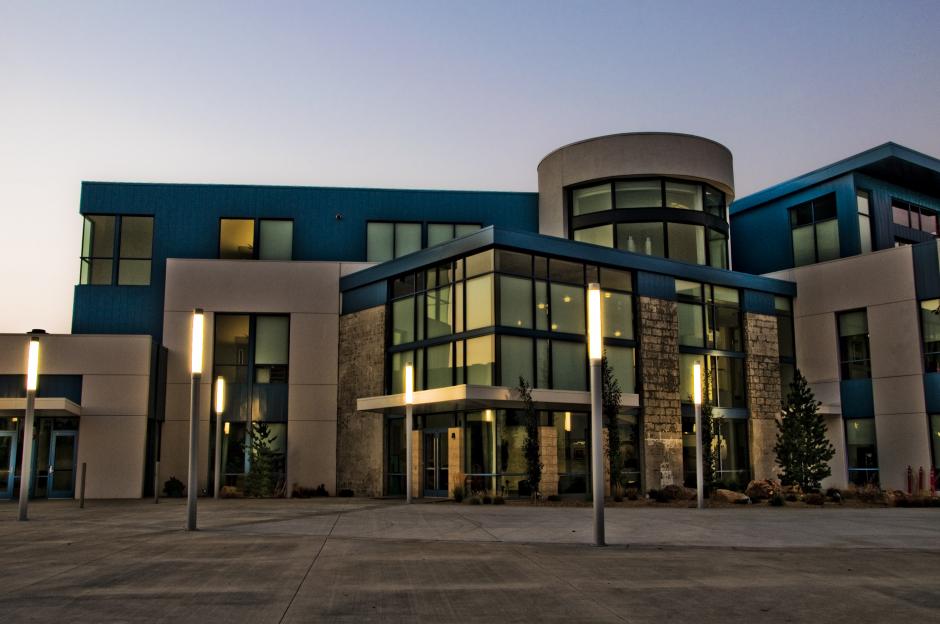
Based in Meridian, PKG designs, engineers and manufactures interfaces — membrane switches, keyboards, touchscreens, trackballs — for medical, industrial and avionics industries. The team actually designed and developed the production version of the Dental RAT with inventor Becky Logue.
In 2011, PKG completed work on a headquarter/manufacturing facility, the first of many planned buildings to facilitate their exponential growth.
Photo credit: Rocky Mountain Electric
PharmaWatch
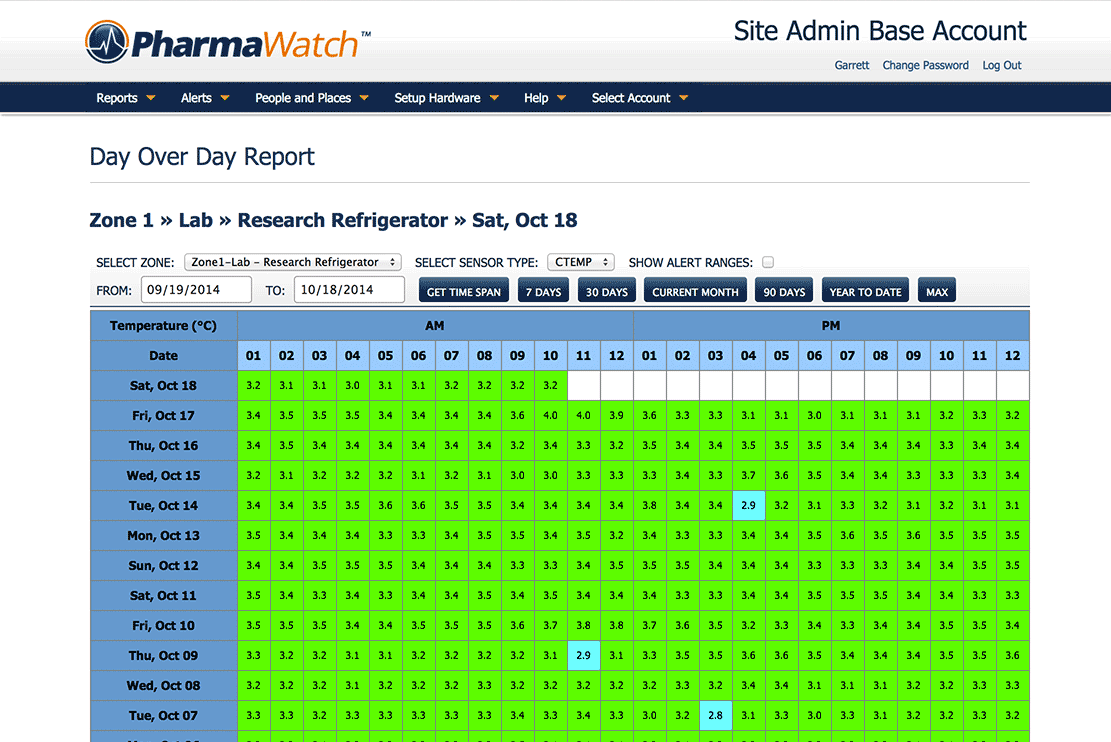
Hospitals, pharmacies and medical research facilities storing refrigerated vaccines and medicines have a strict set of CDC standards to follow. If a vaccine or medicine is stored at temperatures higher or lower than needed, it can lose potency or go bad.
PharmaWatch software connects to refrigeration units to remotely monitor the temperature and humidity of hundreds of units all at once. If a refrigeration unit stops working, PharmaWatch software will notify the medical organization to dispose of the products inside and repair the unit.
CTO and Co-founder Michael Altree is proud to see PharmaWatch software monitoring the vaccines given to children across the state of Idaho.
What are the benefits of building a healthcare / health IT business in Boise?
Michael: Boise is such a tight-knit community, it was easy for us to have a high level of collaboration between the State of Idaho — who administers the vaccines — and local healthcare providers. The collaboration allowed us to get PharmaWatch deployed throughout the healthcare systems here in Idaho.
In Boise, it’s easy to develop a personal relationship with folks who are involved in healthcare, which is a little harder to do in Seattle.
What are the biggest challenges of building a healthcare / health IT business in Boise?
Michael: Boise is a great place for collaboration between the state and healthcare providers, but we don’t have forums like Cambia Grove [a community space for innovations in healthcare] in Seattle. There’s a lot more money to facilitate interaction between healthcare providers and young companies who are bringing effective solutions into the healthcare space.
This transformational shift in healthcare is in its infancy. New government regulations and industry standards will push healthcare organizations to embrace the internet, find ways to be more efficient and provide better care for their patients.
For Boise and and other cities across the U.S., it will mean more opportunities for startups to do what they do best: innovate.
*Responses edited for clarity and length.

